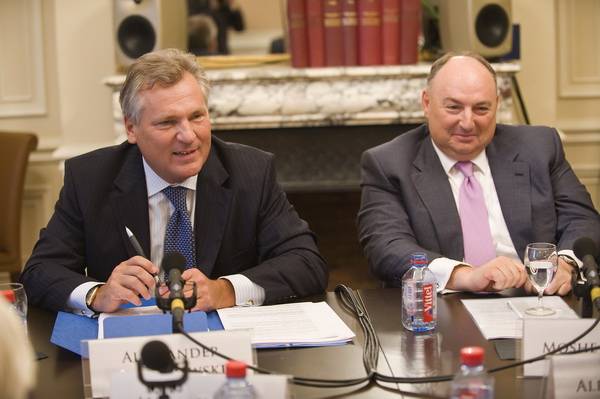Life Site News
October 27, 2013

A council of former heads of state and government leaders has called on the European Union to establish national surveillance units to monitor citizens of all 27 EU member states suspected of “intolerance”.
The European Council on Tolerance and Reconciliation (ECTR), a “tolerance watchdog” launched under the leadership of former Polish president Aleksander Kwasniewski and Moshe Kantor, President of the European Jewish Congress, called for the establishment of government surveillance bodies to directly monitor the “intolerant” behavior of identified citizens and groups.
The council, which includes former presidents of the Czech Republic, Slovenia, Albania, Latvia, and Cyprus, and former prime ministers of Spain and Sweden, made the proposal in a report delivered during a 45-minute speech to the European Parliament’s Committee on Civil Liberties (LIBE).
These “special administrative units,” the report says, “should preferably operate within the Ministry of Justice.”
“There is no need to be tolerant to the intolerant,” it states, especially “as far as freedom of expression is concerned.”
The ECTR called its proposal the “Framework National Statute for the Promotion of Tolerance” and presented it as part of the EU’s work towards a new “Equal Treatment Directive” (ETD), published under the title, “Proposal for a Council Directive on implementing the principle for equal treatment between persons irrespective of religion or belief, disability, age or sexual orientation”.
European Dignity Watch, a civil rights watchdog group based in Brussels, has warned that this directive “aims to impose governmental control over the social and economic behavior of citizens in the widest possible sense.”
In a scathing critique, the group says that the ECTR Framework’s basic principles are flawed and that it “interferes in an unprecedented manner with citizens’ freedom and rights” and “distorts the concepts of ‘justice’ and ‘equality’.”
Through “a reversal of the burden of proof,” the proposal “encourages frivolous litigation” and will lead to “institutionalized public control” of private opinion and thought, they say.
The Framework demands the outlawing of “group libel” that it defines as “defamatory comments made in public and aimed against a group…or members thereof, with a view to inciting to violence, slandering the group, holding it to ridicule or subjecting it to false charges.”
It adds that “group libel” “may appear to be aimed at members of the group in a different time (another historical era) or place (beyond the borders of the State).”
